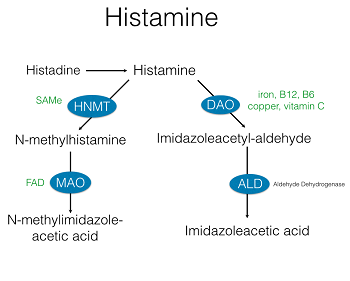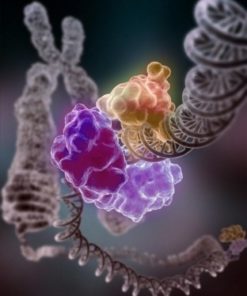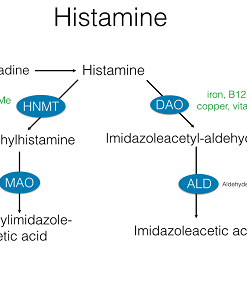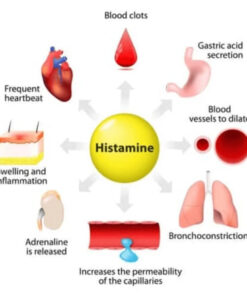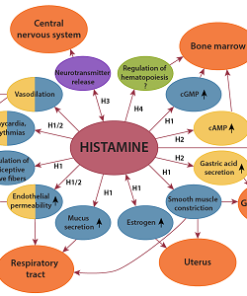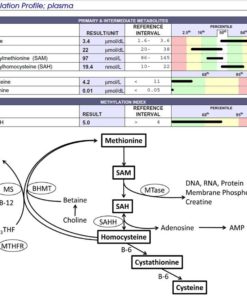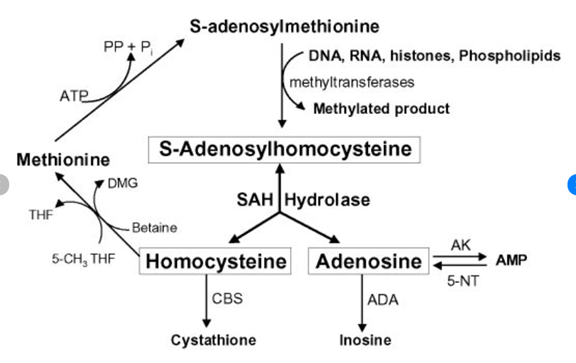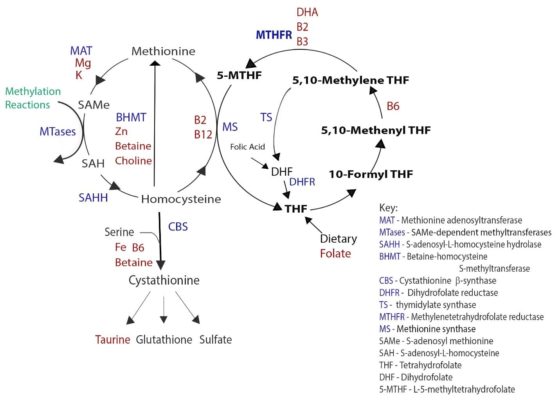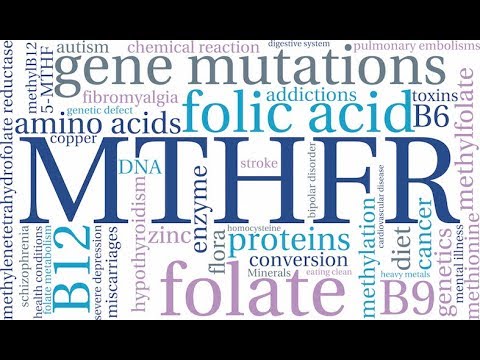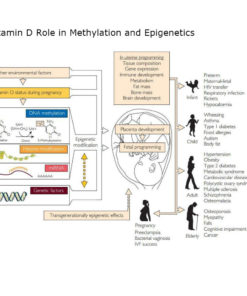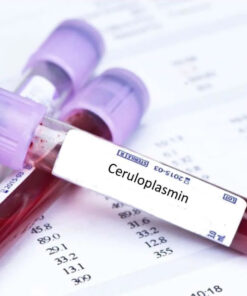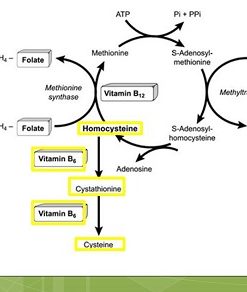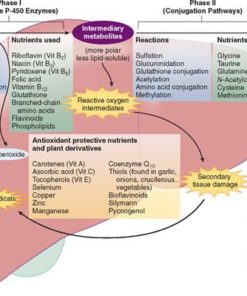Methylation Test Panel – Whole Blood Histamine & Homocysteine
$129.00
Histamine, whole blood #83088; Homocysteine; plasma #83090
Methylation Testing - Whole Blood Histamine and Homocysteine
Testing for methylation status, both overmethylation and undermethylation, is essential when managing a range of mood and neurodevelopment disorders, including depression, OCD, ADHD, anxiety, and Autism Spectrum Disorder. One reliable and effective method of doing this is through the use of a whole blood histamine test. This is different from a plasma histamine blood test which is a histamine test that looks at histamine in the plasma, the fraction of blood which carries the blood cells throughout the body. While doctors often test plasma histamine in persons with histamine intolerance, the majority of histamine present in the body is within the whole blood cells of white blood cells, specifically basophils and mast cells. Whole blood cells are utilized for testing methylation status because within those cells are a methyl-dependent enzyme which is what controls the level of histamine, giving physicians an understanding of ones true methylation status.
How to Test for Overmethylation and Undermethylation Using Histamine Blood Test
Many may not realize that overmethylation and undermethylation are significant issue when it comes to mood and behavior disorders. Overmethylators typically display excessive activity of serotonin and dopamine activity, which can be inadvertently exacerbated by traditional antidepressants. Undermethylators have low activity of serotonin and dopamine. The whole blood histamine test, is a histamine blood test, that can be used to easily determine ones methylation status.
When combined with a homocysteine test, the histamine blood test can help determine a nutrient treatment plan to manage patient's unique methylation status. Based on the outcomes of these tests, physicians can decide whether a patient would benefit from supplements like methionine and SAM-e, which increase methylation and hence serotonin and dopamine activity. For testing overmethylation, homocysteine is useful if it is evident that a low whole blood histamine indicates overmethylation. When that is the case, knowing the homocysteine level, can provide helpful information regarding the status of folic acid. Unlike undermethylators with depression, overmethylators, likely low in folates, will probably benefit from folic acid and niacin supplements, which help to reduce serotonin and dopamine activity.
Whole Blood Histamine Test Vs. MTHFR Genetic Testing
Contrary to MTHFR genetic testing, the whole blood histamine test provides a measurement of the actual methylation status. This feature makes it a more precise tool for managing mood disorders, given the limitations of MTHFR testing. After all, there are more than 70 genes involved in the methylation pathway, and a test focusing solely on MTHFR, which may be helpful in identifying possible causes of elevated homocysteine, is not generally a good determinant of a patient's methylation status.
The Methylation Panel Blood Test: Incorporating Histamine and Homocysteine Tests
The methylation panel blood test, which can also be referred to as the methylation test, incorporates the whole blood histamine test and homocysteine test to evaluate a patient's methylation status according to the Walsh approach. The homocysteine test plays an integral role in this process as it can indicate whether methylated folate and/or B12 supplements may be helpful, and aids in customizing supplement strategies based on the unique biochemistry of each individual's methylation pathway.
The Role of Histamine Test in Personalized Treatment Plans
According to research by Dr. Walsh, undermethylation is the more common form of methylation imbalance. However, it's advisable to avoid treatment with folates and niacin unless absolutely necessary. In these scenarios, the histamine blood test, specifically the whole blood histamine test proves to be pivotal in the management of these disorders, enabling the development of personalized treatment plans that take into account the intricate complexities of the methylation pathway.
This approach underscores the principle that understanding an individual's methylation status, whether it be overmethylation or undermethylation, is the key to effective management and treatment of mood and neurodevelopment disorders.
Other Useful Methylation Tests and Free Consultation Links
Medical Consultation
Free Pre-Consultation | Find out if the Walsh Approach Ideal for You
Walsh Approach Single Tests
Walsh Approach Test Panels
Walsh Approach Test Panels
Videos and Posts explaining Methylation Role in Depression
You may also like…
Walsh Approach Single Tests
Walsh Approach Test Panels
All Cognoscopy Labs
Medical Consultation
Walsh Approach Test Panels
Walsh Approach Single Tests




